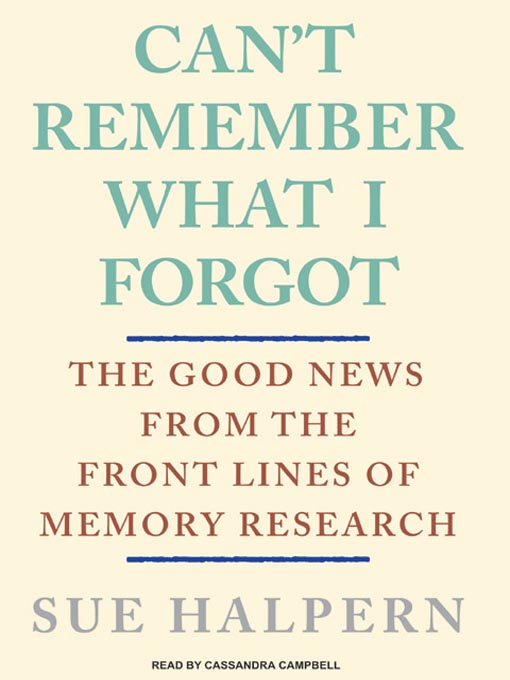
Can't Remember What I Forgot
The Good News from the Frontlines of Memory Research
فرمت کتاب
audiobook
تاریخ انتشار
2008
نویسنده
Cassandra Campbellناشر
Tantor Media, Inc.شابک
9781400177547
کتاب های مرتبط
- اطلاعات
- نقد و بررسی
- دیدگاه کاربران
نقد و بررسی

Cassandra Campbell's melodic voice adds interest to this important book about the brain and memory. Author Sue Halpern used herself as a guinea pig, undergoing a battery of tests in order to report on the field of brain research--the doctors, subjects, and data. By varying her tone and pacing, Campbell adds texture to the reportage, even managing to make long descriptions of the tests themselves clear and involving for the listener. (Or, at least, fairly involving.) When reading the personal sections of the narrative, she is a fine stand-in for the author, giving voice with audible humor and empathy to listeners' inevitable worries about the state of their own brains. A.C.S. (c) AudioFile 2008, Portland, Maine

March 17, 2008
Novelist and science writer Halpern (Four Wings and a Prayer
) wades bravely into the morass of modern memory research to sort the truth from a wide assortment of “hyperbole and promises and platitudes.” The news is mixed: most of us won’t develop Alzheimer’s, but everyone will suffer some memory loss. After describing the different types of memory, Halpern gamely undertakes a series of brain scans used to reveal brain damage and tries diagnostic tests that measure memory through the ability to recall words, images and smells. Researchers have identified a gene closely linked with Alzheimer’s, but drugs to treat or prevent memory loss are still far from reality, Halpern says, adding that for many drug companies, the success of a remedy is measured only by how quickly it moves off the shelves. Armed with a mix of hope and healthy skepticism, the author also examines claims that eating chocolate (among other things) or solving puzzles can improve brain function. “So much of who we know ourselves to be comes from what we remember,” Halpern writes, and her timely book offers a vivid, often amusing introduction to a science that touches us all.

























دیدگاه کاربران